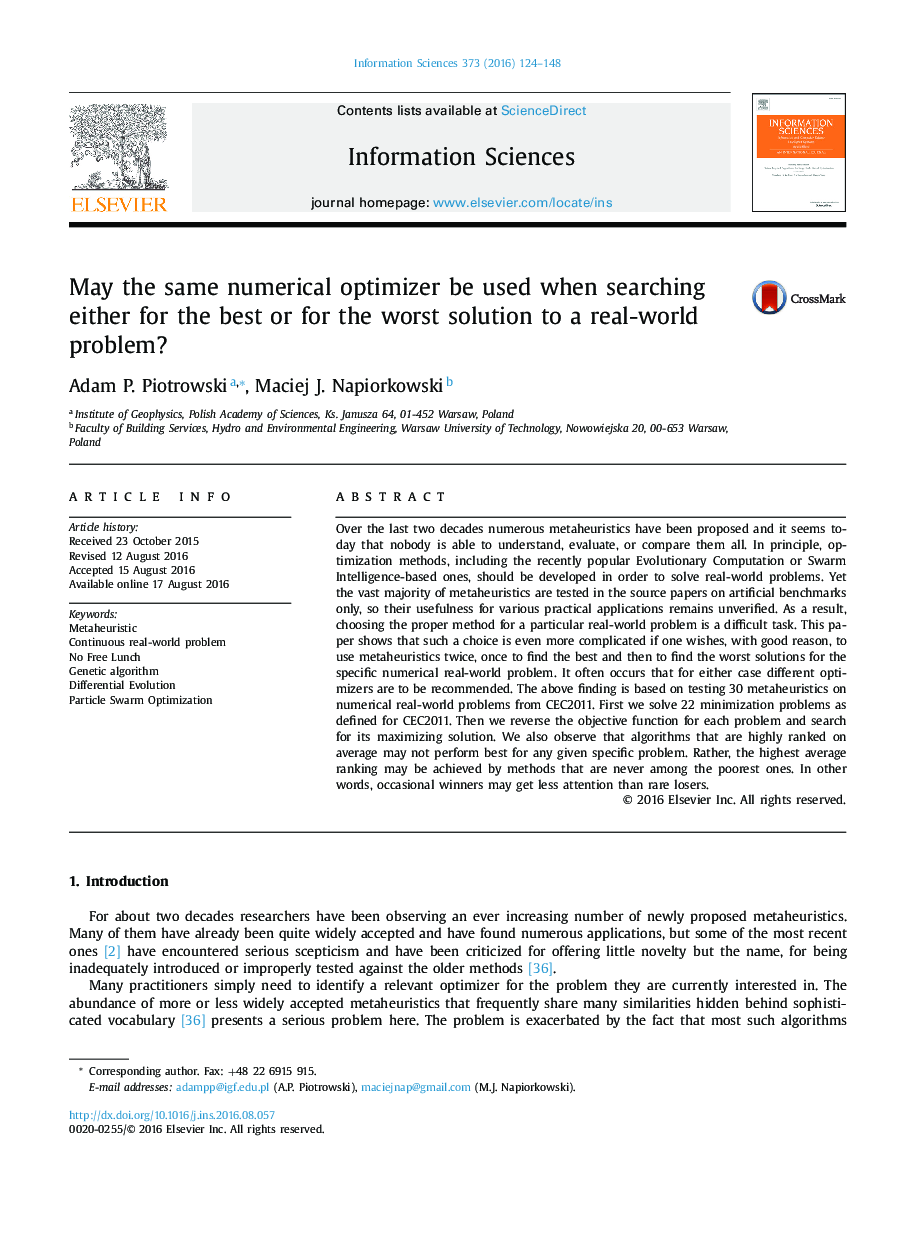| کد مقاله | کد نشریه | سال انتشار | مقاله انگلیسی | نسخه تمام متن |
|---|---|---|---|---|
| 4944897 | 1438015 | 2016 | 25 صفحه PDF | دانلود رایگان |
عنوان انگلیسی مقاله ISI
May the same numerical optimizer be used when searching either for the best or for the worst solution to a real-world problem?
ترجمه فارسی عنوان
آیا ممکن است همان بهینه ساز عددی هنگام جستجو برای بهترین یا بدترین راه حل یک مشکل دنیای واقعی استفاده شود؟
دانلود مقاله + سفارش ترجمه
دانلود مقاله ISI انگلیسی
رایگان برای ایرانیان
کلمات کلیدی
فراماسونری، مشکل واقعی در دنیای واقعی، بدون ناهار، الگوریتم ژنتیک، تکامل دیفرانسیل، بهینه سازی ذرات ذرات،
موضوعات مرتبط
مهندسی و علوم پایه
مهندسی کامپیوتر
هوش مصنوعی
چکیده انگلیسی
Over the last two decades numerous metaheuristics have been proposed and it seems today that nobody is able to understand, evaluate, or compare them all. In principle, optimization methods, including the recently popular Evolutionary Computation or Swarm Intelligence-based ones, should be developed in order to solve real-world problems. Yet the vast majority of metaheuristics are tested in the source papers on artificial benchmarks only, so their usefulness for various practical applications remains unverified. As a result, choosing the proper method for a particular real-world problem is a difficult task. This paper shows that such a choice is even more complicated if one wishes, with good reason, to use metaheuristics twice, once to find the best and then to find the worst solutions for the specific numerical real-world problem. It often occurs that for either case different optimizers are to be recommended. The above finding is based on testing 30 metaheuristics on numerical real-world problems from CEC2011. First we solve 22 minimization problems as defined for CEC2011. Then we reverse the objective function for each problem and search for its maximizing solution. We also observe that algorithms that are highly ranked on average may not perform best for any given specific problem. Rather, the highest average ranking may be achieved by methods that are never among the poorest ones. In other words, occasional winners may get less attention than rare losers.
ناشر
Database: Elsevier - ScienceDirect (ساینس دایرکت)
Journal: Information Sciences - Volume 373, 10 December 2016, Pages 124-148
Journal: Information Sciences - Volume 373, 10 December 2016, Pages 124-148
نویسندگان
Adam P. Piotrowski, Maciej J. Napiorkowski,
